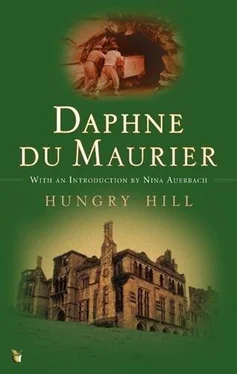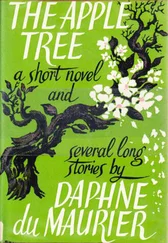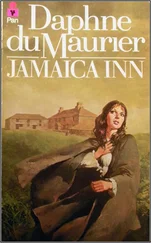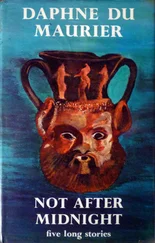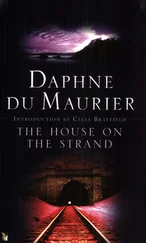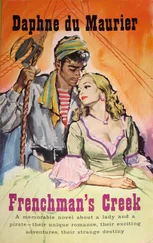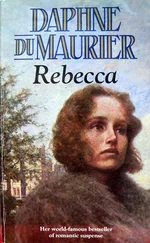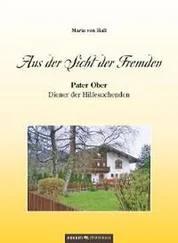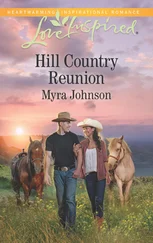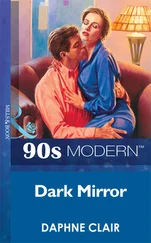Daphne du Maurier - Hungry Hill
Здесь есть возможность читать онлайн «Daphne du Maurier - Hungry Hill» весь текст электронной книги совершенно бесплатно (целиком полную версию без сокращений). В некоторых случаях можно слушать аудио, скачать через торрент в формате fb2 и присутствует краткое содержание. Жанр: Историческая проза, на английском языке. Описание произведения, (предисловие) а так же отзывы посетителей доступны на портале библиотеки ЛибКат.
- Название:Hungry Hill
- Автор:
- Жанр:
- Год:неизвестен
- ISBN:нет данных
- Рейтинг книги:3 / 5. Голосов: 1
-
Избранное:Добавить в избранное
- Отзывы:
-
Ваша оценка:
- 60
- 1
- 2
- 3
- 4
- 5
Hungry Hill: краткое содержание, описание и аннотация
Предлагаем к чтению аннотацию, описание, краткое содержание или предисловие (зависит от того, что написал сам автор книги «Hungry Hill»). Если вы не нашли необходимую информацию о книге — напишите в комментариях, мы постараемся отыскать её.
Hungry Hill — читать онлайн бесплатно полную книгу (весь текст) целиком
Ниже представлен текст книги, разбитый по страницам. Система сохранения места последней прочитанной страницы, позволяет с удобством читать онлайн бесплатно книгу «Hungry Hill», без необходимости каждый раз заново искать на чём Вы остановились. Поставьте закладку, и сможете в любой момент перейти на страницу, на которой закончили чтение.
Интервал:
Закладка:
"Do you belong to this God-forsaken country?" asked the officer.
"I do," said John-Henry, "and what's more I intend to live in it."
"You must be crazy," said the other, "unless you're a sportsman. They know how to breed horses, if nothing else."
"Good woodcock shooting, where I belong," said John-Henry, "and snipe in the bogs, and hares on Doon Island and Hungry Hill. That's the only sort of shooting I care about, not this monkey-business you fellows have to do."
"Doon Island?" said one of them. "I had a friend garrisoned there at one time. It's quiet, I believe, down west of Mundy. The people won't play either way."
"Too idle," said John-Henry, "like myself.
They only want to be left alone. And now what about having a drink with me? I don't suppose I'm the first of my countrymen to offer you hospitality."
The bartender came forward, and John-Henry moved up closer to the officers.
"Four whiskies-and-sodas for these gentlemen and myself," he said.
He listened with half an ear to the stories of the fighting, how the Town Hall, in a city farther north, had been seized by the rebels and set ablaze, and then the fellows had spent all their ammunition and taken to their heels and hidden out in the mountains.
"We went out to look for them," said the officer, "and brought them all back, two of them dead from lying out there in the cold. We shot the rest next morning.
Oh, we have lively moments. It's not all sitting on our backsides."
And this, thought John-Henry, has been going on through the ages, and my family took no part in it.
They lived at Clonmere, and built their mines, and raised their copper, and came in here to Slane to the shipping-office without caring a damn who bled on the roadside, as long as they lived in comfort at Clonmere. And all I care about is for this lunacy to be over so that I can do the same. The officers had swallowed their drinks, and were fixing their belts.
"And now what?" said John-Henry.
"Patrol," said the first officer, "and maybe a knife under the ribs. Come and join us."
"Not I," smiled John-Henry.
"We'll come and shoot woodcock with you," said the officer, "when we've killed enough of your countrymen.
Goodnight, and good luck."
"Goodnight," said John-Henry.
The bartender was putting up the shutters and fastening the bolts.
"That's the last of them," he said, "there won't be any more tonight. You'll go up through the hotel entrance, if you please."
John-Henry glanced round the room. It was empty, except for himself and the bartender.
"There was a man in the corner," he said, "when I first came in. I seemed to recognise his face.
Do you know who he was?"
The bartender shook his head.
"We get all sorts these days," he said.
"He must have slipped away very quietly," said John-Henry. "I'm sorry about it, because I had a feeling he came from Doonhaven."
The bartender ran a cloth along the side of the bar.
"If he came from your home," he said slowly, "it's a pity he saw you drinking with the Black and Tans."
John-Henry stared at him.
"What do you mean?" he said. "I don't know those fellows. They're nothing to me."
"No," said the bartender, "but this is a funny country… Goodnight, sir."
He switched off the light over the bar as a signal of dismissal.
John-Henry walked slowly up the stairs to bed. He drew aside the curtains of his room, and looked at the sky. The rain had cleared, and the stars were shining. There was a clean fresh smell in the air of washed streets, and night itself, and early spring. The church bell tolled out the hour. Down in the street, below his window, the patrol marched by with tramping feet.
The rain had all gone by morning, and the sun was shining as John-Henry drove out of Slane along the road to Mundy. His spirits were high, for he was young and in good health, and his car ran well, and he was going home. The dream of boyhood was to come true at last, Gone were the years of war, of stress, and duty, of travelling strange waters, of sweating under tropical skies. He had come back again, to the place where he belonged. And the air had a softness to it, belonging to no other country, the very hills were magic, with the morning mist upon them.
Aunt Lizette had doubted that he could live alone at Clonmere, twenty miles from any railway station. He would not know, she had said, what to do with himself; assuming that because he was war Weary he must be restless too, seeking company, and sport, and entertainment. John-Henry smiled, for restlessness belonged to the days at Salonika, where nothing was certain and nothing was true and fear was present in great measure; a man who trod his own soil and smelt his own land could never be restless, not if he loved it well. As for company, why, he had his own thoughts and dreams to spin at leisure, and the fascinating exploration of the past to make him understand the present.
What was John-Henry but the outcome of the years?
And looking back into the past he would learn about the future. Maybe a hundred years ago old Copper John had travelled this same road from Slane to Mundy, in confidence and strength, bequeathing to his great-great-grandson no ruggedness of character, no hardness of heart or monetary ambition, nothing but a strange facility for figures; so that lightning sums in the head and absurd mathematical calculations were the easiest thing in the world! Irony of time, that this was the only legacy handed down from the founder of the family fortunes, whose life's work, the copper mines, lay rusted and lichen-covered in the folds of Hungry Hill. Why, thought John-Henry, do I have a sentimentality for very small puppies, and birds that are maimed, and even wounded, blundering bumble bees? Is it because the son of Copper John loved greyhounds better than men, and could not destroy as much as a wasp upon a window-pane, for the good God made all things to live under the sun?
As he drove, bits and pieces of family history came back to him that his mother had gleaned for him from time to time, because she knew he loved the past.
The turbulent Fanny-Rosa, who ran stocking-less in the dew and broke the hearts of men, and her own as well perhaps, though she told it to no one; and the soft-eyed Jane of the picture, with her hand upon her heart, looking towards Doon Island.
"It was Fanny-Rosa Flower," his mother had said, nodding wisely, "who brought the bad blood into the Brodricks."
Alas, poor Johnnie… His ceremonial swords still hung in the library at Clonmere, crossed, above the mantelpiece.
John-Henry would get them down when he reached home, and clean them, and make them bright again, so that Johnnie in his grave would not feel himself forgotten.
"It will take time, son," said his mother, "getting the place to rights again. And you will have to buy furniture, you know, for the new wing."
"Even if it's the work of a life-time, no matter," said John-Henry.
If the floors were unscrubbed and cobwebs clung from the corners, at least it would be his plot of earth, his kingdom. Sport and entertainment; Aunt Lizette had wondered about these.
There were woodcock and hares on the island, and snipe in the bogs by Kileen; killigs in the creek, and little brown trout in the lake on Hungry Hill. The people of Doonhaven were all the neighbours he wanted; and if the parson and the priest would sink their differences and take cold pig with him on Sunday, why, he would have done all that was necessary for the future of his country.
The dull miles lay behind him, and in front rose the pass, wild and rocky, with the heather and the gorse amidst the granite, tumbling to the road's edge. This, thought John-Henry, was where Copper John rode in his post-chaise the day he signed the lease for the copper mines with Robert Lumley, and Robert Lumley himself would have travelled down in gloomy state to Castle Andriff, from his solitary mansion at Duncroom, which lies naked to the skies now, razed to the earth by the rebels. The bitter feud-for what fine purpose and to what good end? Once again, John-Henry wondered why men must kill one another and spill blood under God's sky, when the gorse is scented, and the heather blows, and the snipe whistle and tumble in the bogs?
Читать дальшеИнтервал:
Закладка:
Похожие книги на «Hungry Hill»
Представляем Вашему вниманию похожие книги на «Hungry Hill» списком для выбора. Мы отобрали схожую по названию и смыслу литературу в надежде предоставить читателям больше вариантов отыскать новые, интересные, ещё непрочитанные произведения.
Обсуждение, отзывы о книге «Hungry Hill» и просто собственные мнения читателей. Оставьте ваши комментарии, напишите, что Вы думаете о произведении, его смысле или главных героях. Укажите что конкретно понравилось, а что нет, и почему Вы так считаете.
